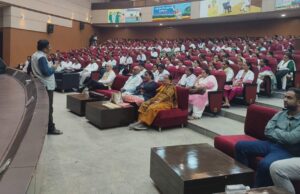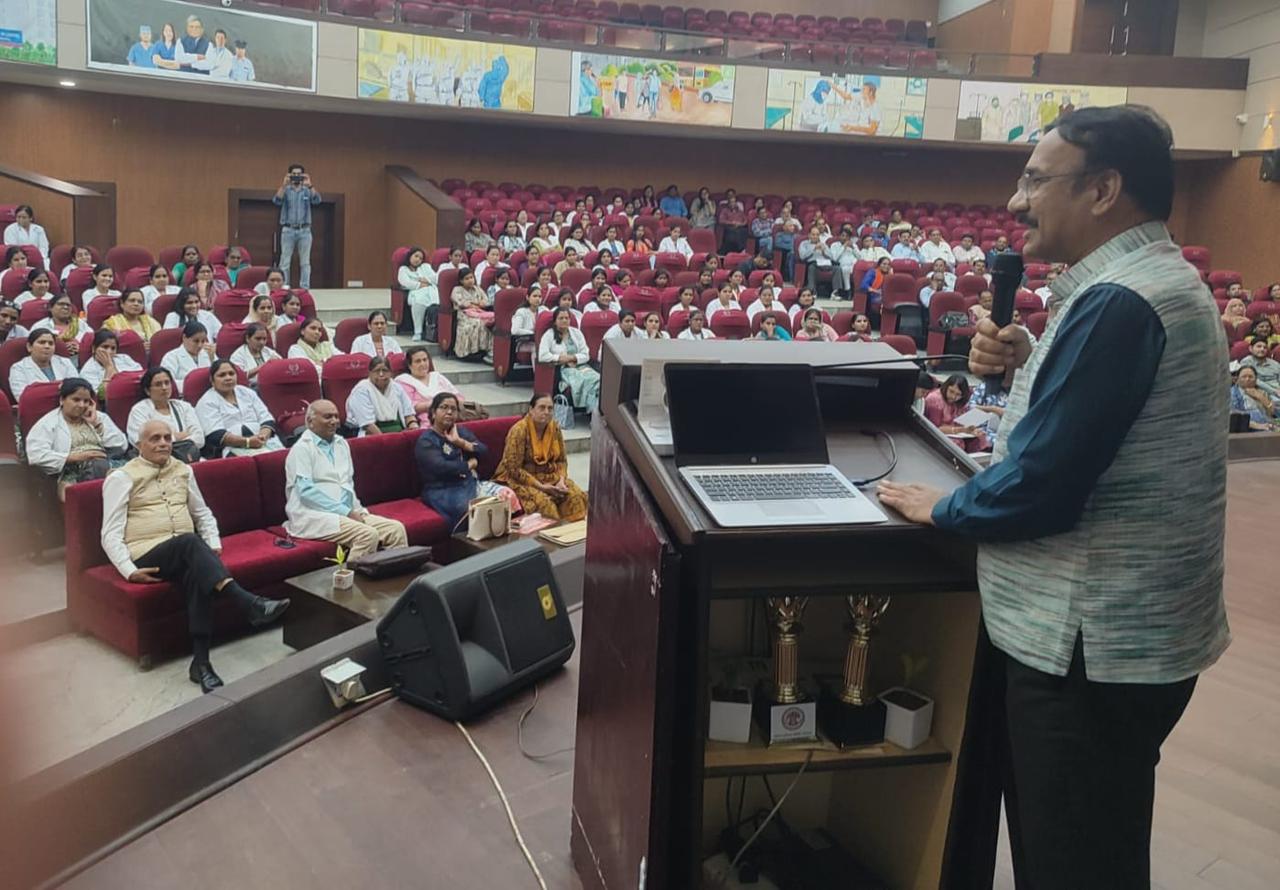CNN Central News & Network–ITDC India Epress/ITDC News Bhopal: Orientation Workshop on Pneumonia Prevention Held at Chirayu Medical College To reduce complications and child mortality caused by pneumonia, the Health Department of Bhopal organized an orientation workshop at Chirayu Medical College under the “SAANS Campaign” (Social Awareness Action to Neutralize Pneumonia Successfully). The workshop aimed to educate various stakeholders about the campaign’s objectives.
Specialists guided doctors and field health workers on pneumonia management and treatment protocols. Participants included pediatricians and doctors from AIIMS, Gandhi Medical College, People’s Medical College, Chirayu Medical College, LN Medical College, RKDF Medical College, and Mahavir Medical College.
Pneumonia accounts for 17.5% of deaths among children under the age of five in India. The goal is to reduce pneumonia-related mortality to fewer than 3,000 per 100,000 live births by 2025. The SAANS campaign, running until February 28, focuses on awareness, prevention, and treatment. Field workers are conducting health check-ups for children under five, providing information to dispel myths and superstitions about pneumonia.
Chief Medical and Health Officer Prabhakar Tiwari emphasized that untreated pneumonia can be fatal. ASHA workers conduct home-based newborn care visits and follow up on discharged children from SNCU and NRC facilities, ensuring special care. Free pneumonia treatment is available at government health centers, and antibiotics like Gentamicin and Amoxicillin are provided even at sub-health center levels.

District Immunization Officer Ritesh Rawat highlighted symptoms like fever, cough, difficulty breathing, rapid breathing, and chest retraction as primary signs of pneumonia. Free PCV vaccines are administered under the routine immunization program to protect children from pneumonia.
WHO Surveillance Medical Officer SM Joshi stressed that incomplete vaccination and malnutrition can also lead to pneumonia. Preventive measures include vaccination, exclusive breastfeeding for six months, adequate complementary feeding, vitamin A intake, handwashing, and reducing indoor air pollution. Pneumonia complications can worsen with infections like Streptococcus bacteria, Haemophilus influenzae Type B, measles, rubella, and TB.
Senior pediatrician Shobha Khot provided training on assessing and classifying pneumonia, identifying critical symptoms, community-based management, and referrals. She recommended administering Gentamicin injections and Amoxicillin syrup before referring severe cases to higher health facilities.
Director Iqbal Ansari explained that monitoring a child’s respiratory rate effectively can help detect pneumonia early. Children breathing 60 or more times per minute (up to 2 months old), 50 or more (2 months to 1 year), or 40 or more (1 to 5 years) are likely to have pneumonia.
The workshop successfully equipped participants with the necessary skills to identify and manage pneumonia, contributing to better health outcomes for children.
#ChirayuMedicalCollege #OrientationWorkshop #MedicalEducation







